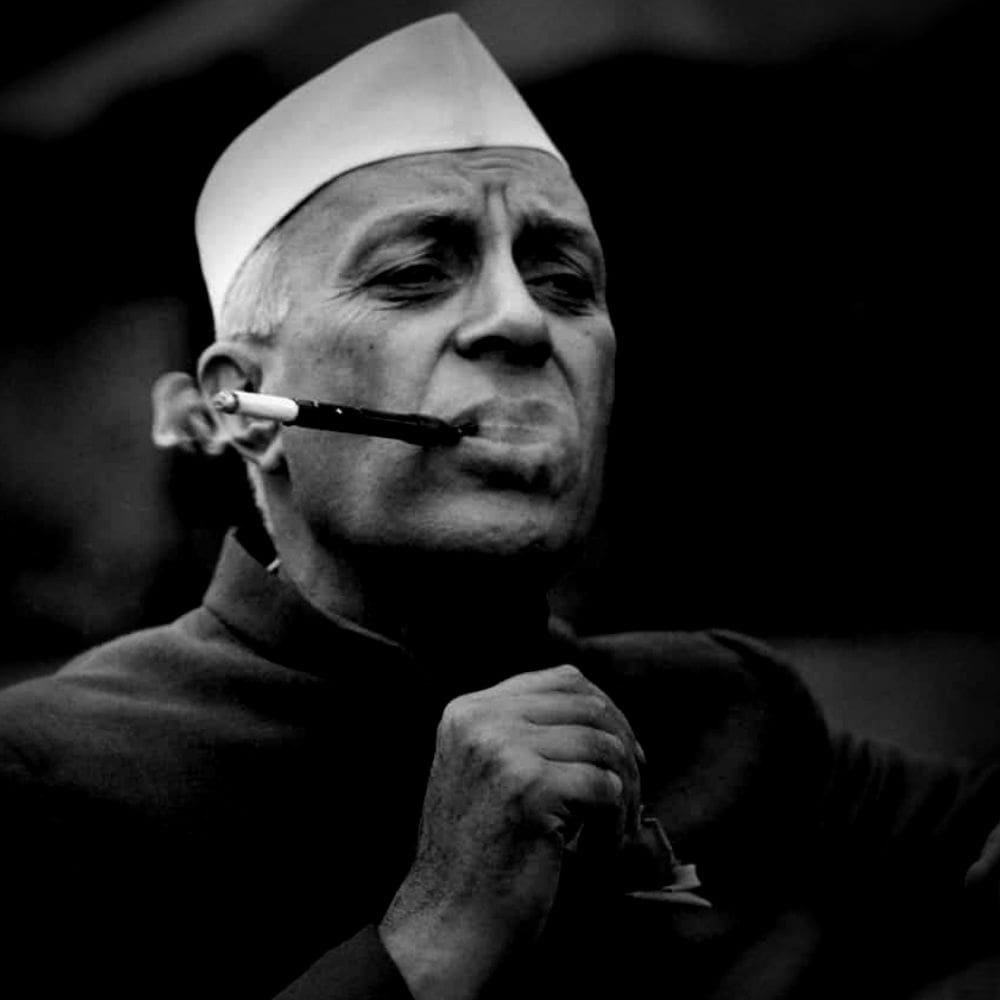LORDLY WAYS—GOOD BYE TO GANDHIAN SIMPLICITY
Gandhi had spoken thus of Jawaharlal Nehru: “He says whatever is uppermost in his mind, but he always does what I want. When I am gone, he will do what I am doing now. Then he will speak my language too.” Had Gandhi watched from the heavens the acts of his chosen protégé, he would have been shocked. Nehru loyalist, Rafi Ahmed Kidwai, had remarked: “Jawaharlal has performed the last rites not only of Gandhi but of Gandhism as well .”
Nehru, who had ranted against rajas, maharajas, nawabs and feudal lords, adopted lordly and feudal ways, and allowed the same to prosper under his “democratic” watch. Rather than his master’s simplicity, Nehru adopted ostentatious Viceroy-like trappings. After Independence, Gandhiji had suggested that the Governor-General of free India should stay in a modest accommodation, rather than in the huge and imposing Viceroy palace— later named as Rashtrapati Bhavan—which should be converted into a public hospital. But, Nehru advised that an alternate suitable accommodation was not available! The place next in stateliness and grandeur to the Viceroy palace was the residence of the British Commander-in-Chief, then called Flagstaff House. Leaving his York Road residence, Nehru occupied this magnificent house, which was later renamed as Teen Murti Bhavan. Others followed Nehru’s example, occupying huge, spacious bungalows. British had deliberately designed these palaces and bungalows to intimidate the natives, appear remote, and command respect. What was the logic of the leaders of free India to follow in their footsteps?
Nehru’s secretary MO Mathai brought out the contrast:
“At 10 Downing Street, the British Prime Minister has only a couple of suites of rooms for his personal use. All the rest are offices and a few are public rooms… Tage Erlander, the Social Democratic Prime Minister of affluent Sweden, for twenty years lived in a three room flat. His wife was a teacher…The Swedish Government did not provide him with a car. The PM and his wife had a small car which they drove themselves. They could not afford to keep a driver… Labour Prime Minister Joseph Chiefley of rich Australia lived in two rooms in a second class hotel near his office. His wife preferred to live on their farm… The PM was not provided with a car. He walked between his hotel and his office…”
What an irony! The non-Gandhians of the rich, Western countries were being Gandhi-like; while the ‘Gandhian’ Congressmen of our own poor, pathetic, post-independent India were adopting the ways of rajas and maharajas, whose feudal, privileged lifestyle they, particularly Nehru, had been cursing all through!
As per MP Raj Bhavan web-site: “On a visit of Jawahar Lal Nehru to Bhopal, the Raj Bhavan staff realised that the favourite cigarette brand of Nehruji ‘555’ was not available in the Raj Bhavan. Nehruji used to have a cigarette after his meals. The staff immediately sent a plane to Indore for air-lifting Nehruji’s favourite pack, which was kept ready at the Indore airport.”
Wrote S. Nijalingappa in ‘My Life and Politics’:
“But after becoming prime minister, he [Nehru] left 17 York Road, a fairly large building and moved to possibly the second largest official residence next to the Rashtrapati Bhavan. His reason of doing so was that official dignity required it. In contrast, I may mention the instance of Ho Chi Minh, the president, Vietnam. When I saw him during his visit to Delhi, he said he had only a few clothes and only two pairs of sandals and lived in a small house. But, in independent India, simple living became an exception. Sardar Vallabhbhai Patel, throughout his stay in Delhi, whether before or after accepting office, lived in a small house at Aurangzeb Road, only large enough for himself and his daughter.”
Durga Das recorded: “Mrs. [Vijayalaxmi] Pandit [Nehru’s sister] told me: ‘I never travel without Ahmed (her liveried peon). The common people know me to be a Minister because Ahmed is with me. They salaam “Ahmed’s livery”.’ Nehru himself realised this well enough when he became the Prime minister and had a retinue of peons and security staff— several times the size any Viceroy had had—when he moved among people.”


